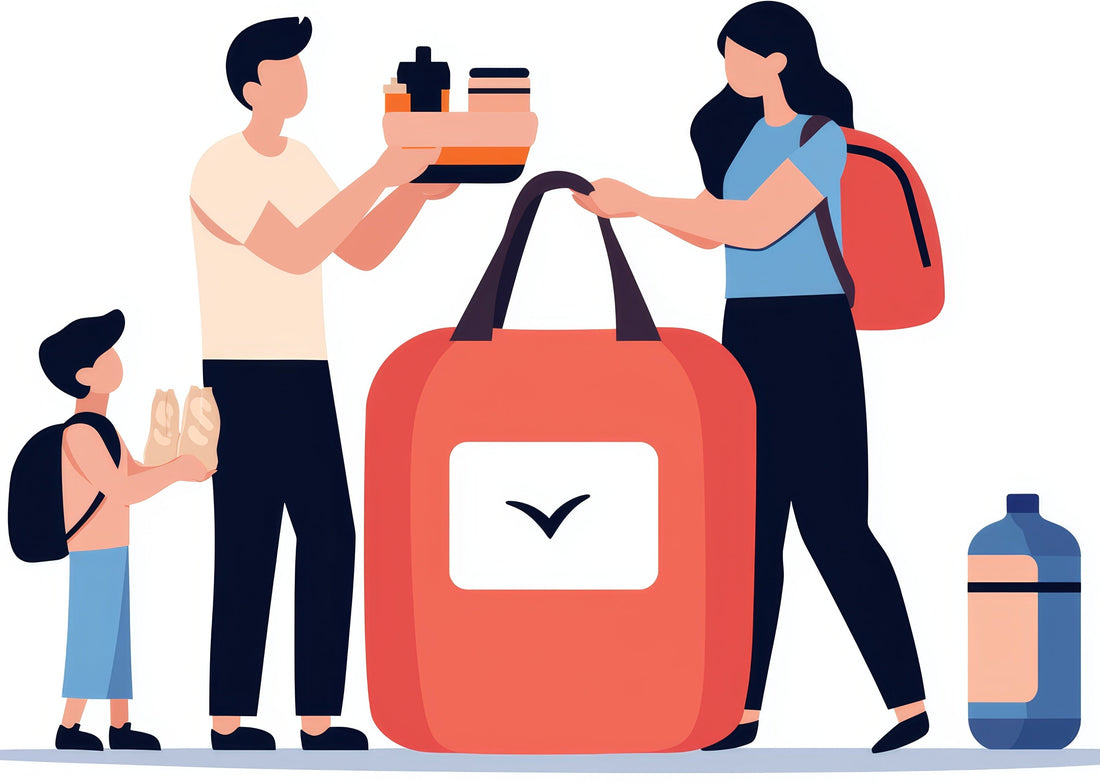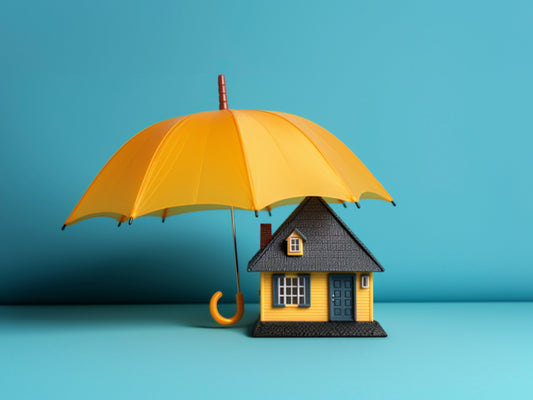
Disaster Insight: What Should Homeowners Have “Ready to Go” in Case of an Emergency?
Emergencies strike when we least expect them: storms, fires, floods, or even sudden plumbing disasters. When they do, the last thing you want is to scramble for essential documents or struggle to remember policy details. A well-prepared homeowner is a well-protected homeowner.
Emergencies strike when we least expect them: storms, fires, floods, or even sudden plumbing disasters. When they do, the last thing you want is to scramble for essential documents or struggle to remember policy details. A well-prepared homeowner is a well-protected homeowner.
Having a "ready-to-go" emergency kit for your property insurance claim can make all the difference when it comes to getting back on your feet quickly. Here’s what you should have on hand to streamline the claims process and protect your investment.
1. A Digital & Physical Copy of Your Insurance Policy
Your insurance policy is your playbook in a crisis. Keep both a physical copy in a waterproof/fireproof safe and a digital copy stored securely in the cloud. This will help you quickly reference coverage details, deductible amounts, and exclusions when needed.
Pro Tip: Take note of your insurance company’s claims department contact info and your agent’s direct line—store these in your phone for quick access.
2. A Home Inventory List (With Photos & Videos!)
Imagine trying to list everything you own after a disaster. Overwhelming, right? A home inventory list saves you from that headache.
What to include:
-
Photos/videos of each room
-
Serial numbers for electronics and appliances
-
Purchase receipts for high-value items
-
A detailed list of furniture, decor, and other assets
Pro Tip: Use an app like Encircle or Sortly to keep your inventory organized. Store copies in the cloud (Google Drive, Dropbox) and on an external hard drive.
3. Emergency Contacts & Contractor List
After an emergency, you may need to contact a restoration company, plumber, or electrician ASAP. Having a pre-vetted list of contractors prevents delays and potential scams.
Contacts to have ready:
-
Insurance agent & claims department
-
Preferred contractor(s)
-
Emergency plumber & electrician
-
Local disaster restoration service
Pro Tip: Beware of “storm chasers” after a disaster—unlicensed contractors looking to take advantage of stressed homeowners. Stick with reputable professionals.
4. Temporary Housing Plan
If your home becomes unlivable, where will you go? Many policies include Additional Living Expenses (ALE) coverage to help pay for hotels or rentals.
Steps to prepare:
-
Identify nearby hotels that accept insurance payments
-
Keep a list of family/friends who can provide temporary shelter
-
Understand what expenses your policy covers (meals, transportation, etc.)
Pro Tip: Save receipts for every expense related to displacement—hotels, meals, even extra gas. These may be reimbursable through your policy.
5. A Grab-and-Go Emergency Kit
In a crisis, you may need to evacuate quickly. Have a go-bag with essentials ready at all times.
What to include:
-
Flashlight & extra batteries
-
First-aid kit
-
Important documents (IDs, medical info, insurance)
-
Cash (ATMs may be down)
-
Essential medications
Pro Tip: Store documents in a waterproof pouch and update the kit every 6 months.
Final Thoughts
Preparedness isn’t just about safety—it’s about speed and efficiency when filing an insurance claim. Having these essentials ready can make all the difference in getting your home (and life) back on track after an emergency.
Need help with a claim? If you’re facing property damage, consult a professional claims adjuster to ensure you get the coverage you deserve.
Stay safe, stay prepared, and remember: the best time to plan for an emergency is before it happens.
Disclaimer:
This blog is intended for informational purposes only and does not constitute legal or financial advice. Tugboat provides information and support, but we are not licensed public adjusters or attorneys. We do not negotiate or adjust claims on your behalf. All advice given is intended to empower you in managing your own claim, but it is ultimately your responsibility to pursue and handle the claim. Tugboat is not responsible for claim outcomes. Additionally, our tools are provided based on the information you provide, which may be incorrect or incomplete. Always consult a licensed professional for case-specific guidance.
Need expert guidance on a homeowner’s insurance claim? Tugboat Claims is here to help!



